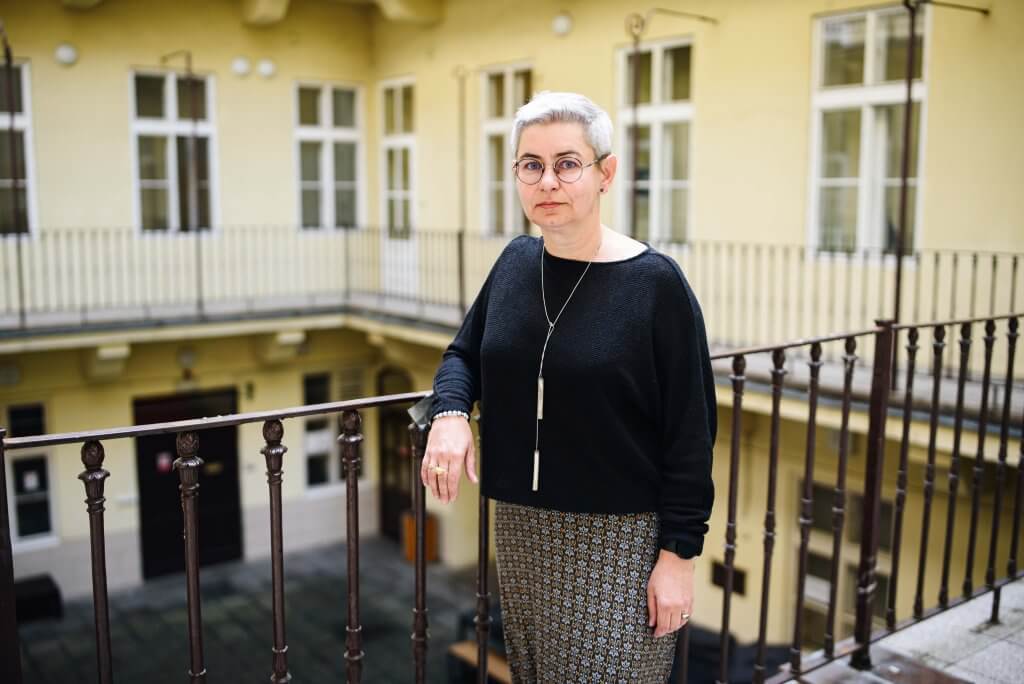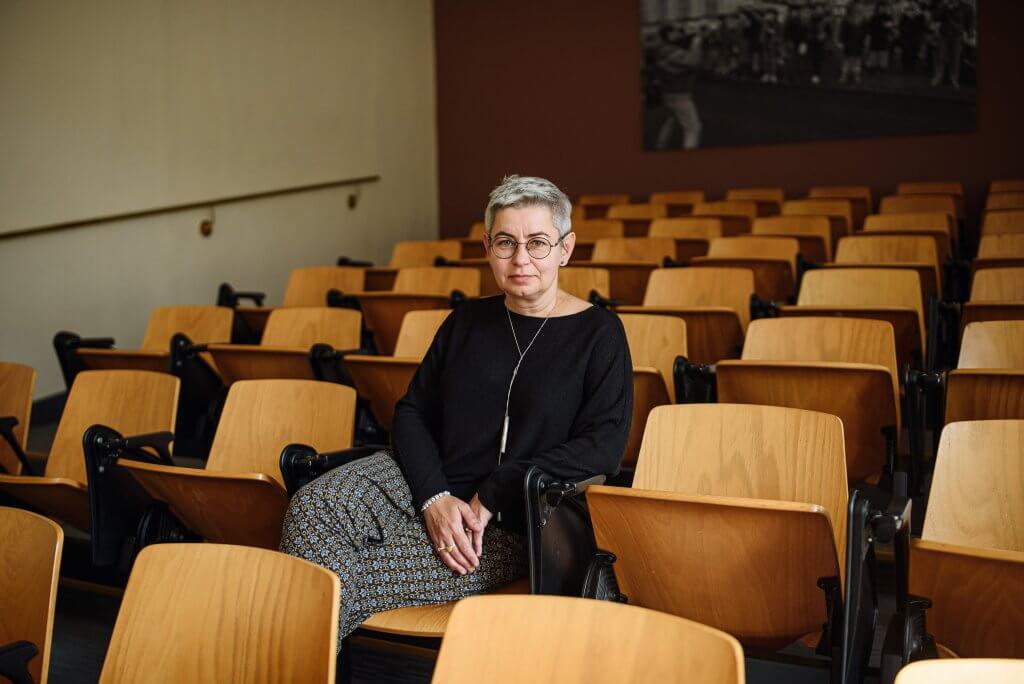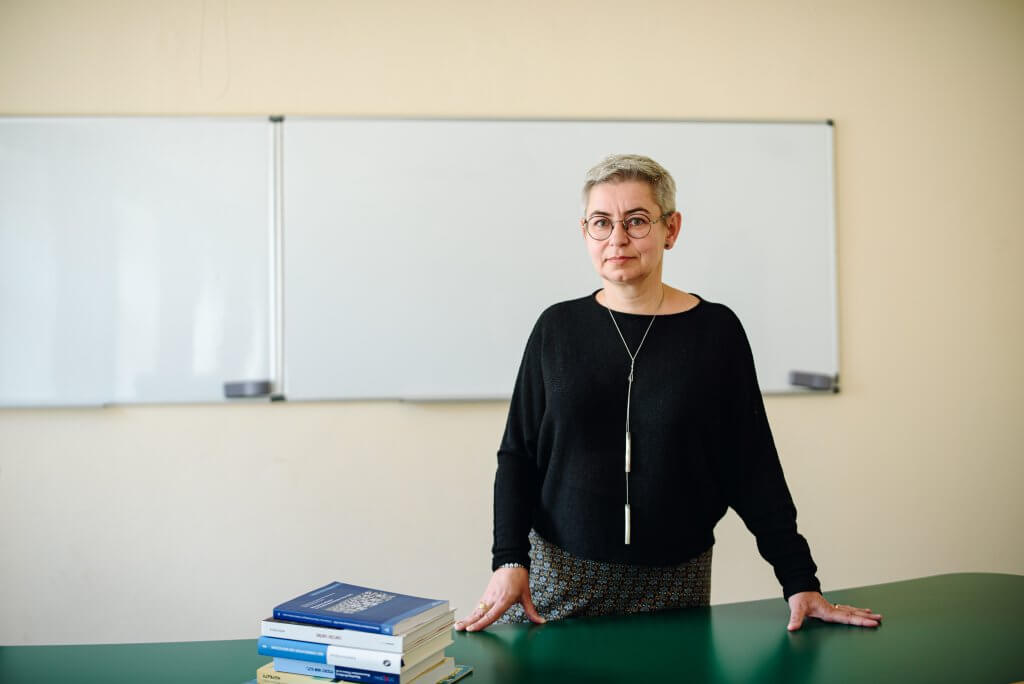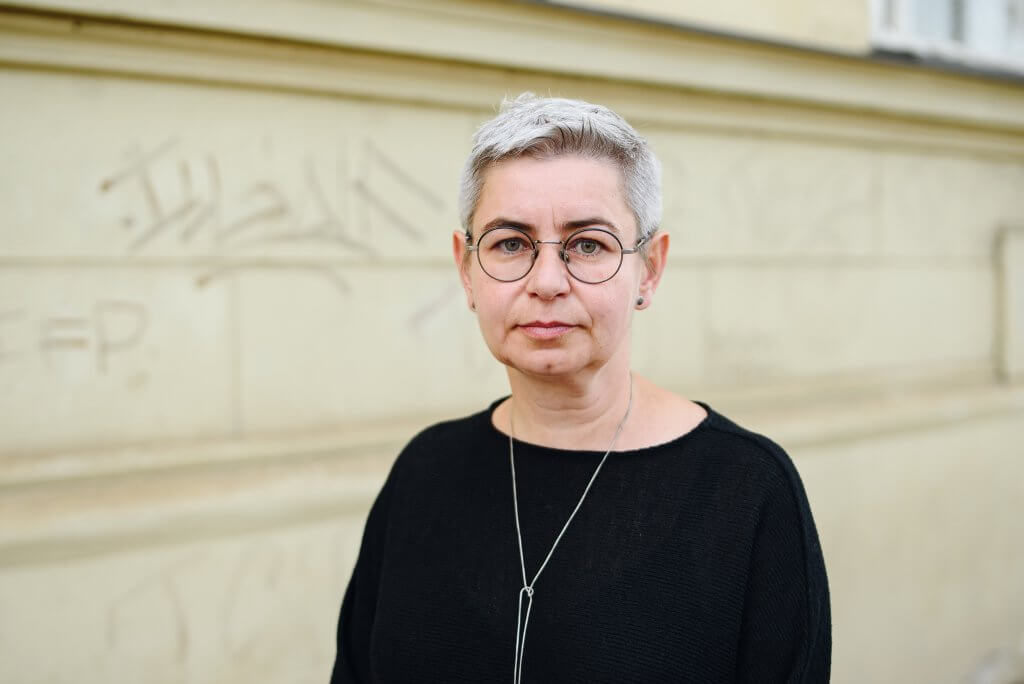Organization of a global conference and 15-year work on a monograph. A historian from IMS reveals her academic journey

Prof. Kateřina Králová from the Institute of International Studies at FSV UK graduated as a Germanist and political scientist, but discipline-wise she considers herself a historian. Last year, she received a professorship in the field of modern history. In her research work, she deals with the history of the 20th century, especially with regard to the events of the Second World War. She has completed a number of collective projects and research stays abroad, which, as she says, always allow her to spread her wings and come back with new knowledge.
Already at the very beginning of her studies, prof. Králová travelled abroad. As a student of the bachelor’s program of Area Studies at FSV UK, she went to Phillips-University in Marburg, Germany. There, after completing a six-month scholarship, she stayed for a while. She completed her Master’s degree in Germany and during her studies she worked at the university as a coordinator for foreign students. “Intercultural communication was something that interested me a lot. At that time, I still thought that I would continue in this direction as a career,” recalls prof. Králová. Not long after that, however, she was attracted by the offer of doctoral studies by prof. Jiří Pešek and she decided to return to FSV UK.
“I thought it might be a good start and then I would see what happens next. But when you have a good mentor who starts to involve you a lot in everything, you suddenly find out how diverse academic work is,” she describes. “Study was not just about learning, lecturing and research. From the beginning, it was also about organisational and managerial work. And I also didn’t study only in Czech, which was important for me. I met people in an international environment, which I enjoyed. At the time, I didn’t think it would be like this forever, but it gradually happened,” she adds.
Her dissertation gradually deepened her interest in the topics she focuses on even now. The dissertation, which was later published as a book by the Karolinum publishing house and later in a German and Greek translation, dealt with compensation for the victims of Nazism in Greece and at the same time with the punishment of Nazi criminals. “At that time, I collected an incredible corpus of material related to the Holocaust and its survivors. I put a lot of materials aside and thought that one day they would become another book,” she recalls.
This will become a reality next year, when 15 years after her dissertation defense, prof. Králová will publish another monograph that in a way follows on from the dissertation. She worked on the text itself for about ten years. Over time, the migration crisis in 2015 fundamentally shifted the research. “The issue of accepting refugees painfully brought me back to what happened during the Holocaust. I was strongly aware that emigration is not only about whether you have the courage and social capital to undertake such a thing and leave at a given moment. But also that the politics of neighbouring countries and global politics are strongly reflected in it. The fate of a person and their trajectory thus moves in the context of these great policies,” states prof. Králová. “But my new book revolves much more around human stories than big politics,” she adds.

Through Greece and USA to Germany
Prof. Králová considers her foreign research stays, of which she completed a number over the years, to be a key part of her academic journey. “For me, it’s always like spreading my wings, flying and then coming back again. Everyone sees it differently, but I think it’s important to shake off the fear and give it a try,” she emphasises.
In connection with the research for her dissertation, prof. Králová spent part of her doctoral studies in Thessaloniki, Greece. Due to the better availability of sources, her next destination was Germany, which was important for her not only because of the research on the Nazi occupation, but also because of the local organisations dealing with Holocaust research. After that, she came to the United States twice – the first time, during her doctoral studies, she went to Yale University as a Fulbright scholar, and the second time she spent almost a year on a scholarship from the US Holocaust Memorial Museum in Washington D.C. while working on the aforementioned monograph, which is to be published next year.
“It was an amazing time of research. I was accompanied by my husband on both stays and with my daughter on the second one. And as you can see, the question of family was not a problem either. I think that’s a very important message for female researchers: It’s possible and it can be rewarding for the whole family,” she states. “Fulbright then became a matter of my heart, which in recent weeks culminated in me becoming the chairperson of the Board of Directors of the J. William Fulbright Commission of the Czech Republic,” she adds.
She also went abroad in the last few years while writing her last book, when she began to decide where her next steps in research would lead. First, she spent one year at the Wiesenthal Institute in Vienna, followed by a scholarship at the Humboldt University in Berlin. “While the first stay was more about the study of the Holocaust, the second scholarship was mainly about territorial studies and again about South-Eastern Europe, which I began to connect a lot with the perspective of Central Eastern Europe. And again, the events around us contributed to it – the full Russian invasion of Ukraine caught me exactly in Berlin, when I started to think about things a little differently,” she states.

Over time, prof. Králová began to focus more on memory studies, the connection of which she considers inevitable with the field of history and contemporary sources. She recently became a member of the Memory Studies Association and is also a member of the international interdisciplinary network of scientists COST-Action Slow Memory. “My colleagues and I look at memory processes there. Not on the events as such, but on the process that leads to them,” she describes.
In this context, her work will culminate in the organisation of the ninth global memory studies conference MSA Conference 2025 – Beyond Crises, which next year will be held at Charles University in partnership with the Czech Academy of Sciences, the German University of Regensburg and the French Research Center in Humanities and Social Sciences CEFRES. “Up to 1,200 delegates will come to Prague. We will discuss questions related not only to the politics of memory, but also environmental, pandemic and physiological memory, various forms of remembering and forgetting in connection with age or other perception due to psychological problems or conditions that we in the normal spectrum cannot automatically root and understand,” she explains.
Collective cooperation
Moreover, prof. Králová also has a number of collective projects, books and publications, on which she worked with senior and junior researchers from the Czech Republic and abroad. “Some scientists prefer to work independently on their sources and data, but for me, working in a team is refreshing. I am constantly learning something thanks to her. And in truth – the more senior one is, the more one feels that learning from others can be more complicated due to the hierarchization of the academic environment. And working in a team frees me from this,” she points out.
One of the examples of collective cooperation is the publication “Vyschly nám slzy.” Řečtí uprchlíci v Československu (Dokořán, 2012), to which prof. Králová together with her long-time colleague from FF UK and graduate of FSV UK Kostas Tsivos followed up the 80th anniversary of the outbreak of the Greek Civil War with a series of texts in the popular science monthly Dějiny a současnost.
Furthermore, another example is a book published in 2016 by the Karolinum publishing house entitled Návraty: Poválečná rekonstrukce židovských komunit v zemích středovýchodní, jihovýchodní a východní Evropy, which is again devoted to Holocaust survivors. However, it examines not only the survivors’ journey back home, but above all the multiplicity and diversity of how their physical and mental return affected them and their surroundings. The book was created under the guidance of prof. Králová and dr. Hana Kubátová from the Institute of Political Studies as a joint work with the participation of young researchers from FSV UK. The research team used the Malach Centre for Visual History at the Faculty of Mathematics and Physics CU, where within one of the archives, specifically the USC Shoah Foundation Visual History Archive, it had available over fifty thousand recordings of testimonies about the Holocaust from almost sixty countries.
“We could listen to the conversations in all available languages. In my work it was mainly Greek, partly English or maybe Bulgarian. But it was essential for the book that for each chapter we worked with interviews that were in the language of the given home country, which normally one researcher absolutely cannot contain and grasp linguistically,” she describes. “And by that I think this book was unique. Later, the USC Shoah Foundation highlighted us on their website,” she adds.

In addition, prof. Králová is also one of the founders of the Herzl Center for Israel Studies, which was established at UK in 2019, the Alliance 4EU+ research cluster Plurality of memory in Europe in a global perspective or the CENTRAL project Institutionalization of memory in post-conflict societies. Seven years ago, she received the Scientific Society Award for scientists under 40 for her research achievements.
Conferences and mentoring
In short, the academic sphere has been really turbulent for prof. Králová recently. In addition to the intensive preparations for the aforementioned global conference and the completion of the monograph, she recently became a full member of the Learned Society of the Czech Republic.
She leaves his plans for the future open. She definitely wants to dedicate herself to mentoring the next generation of academics in the field. After all, within the Transnational politics, complicity, and victims of the Holocaust grant, she works at FSV UK as a guarantor of courses focused on the study of the Holocaust. Two years ago she also received financial support from the Claims Conference Foundation to create a junior lecturer position.
“I really hope that there are many more students ahead of me. That makes me happy. Likewise, there may be another book ahead of me. But I don’t have a clear plan yet. It is a question of whether I will stay with the study of the Holocaust,” she states. “For example, I can imagine the topic of evacuating children, specifically Greek refugees in Eastern Europe during communism, but also Jewish children who went unaccompanied to foreign countries. I am drawn to the context of an unaccompanied child in a time of conflict. But we’ll see, maybe I’ll move somewhere further,” concludes prof. Králová.


